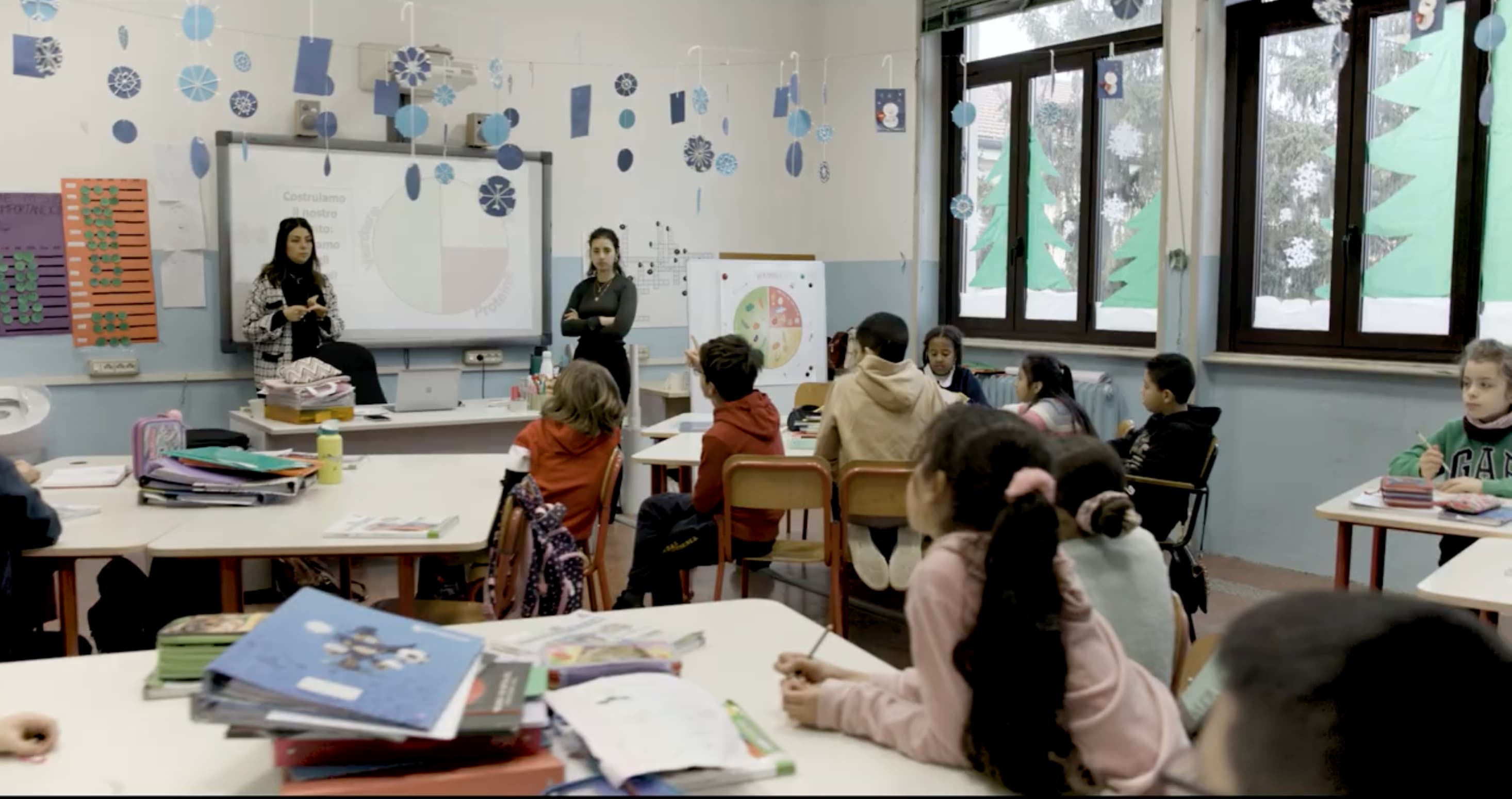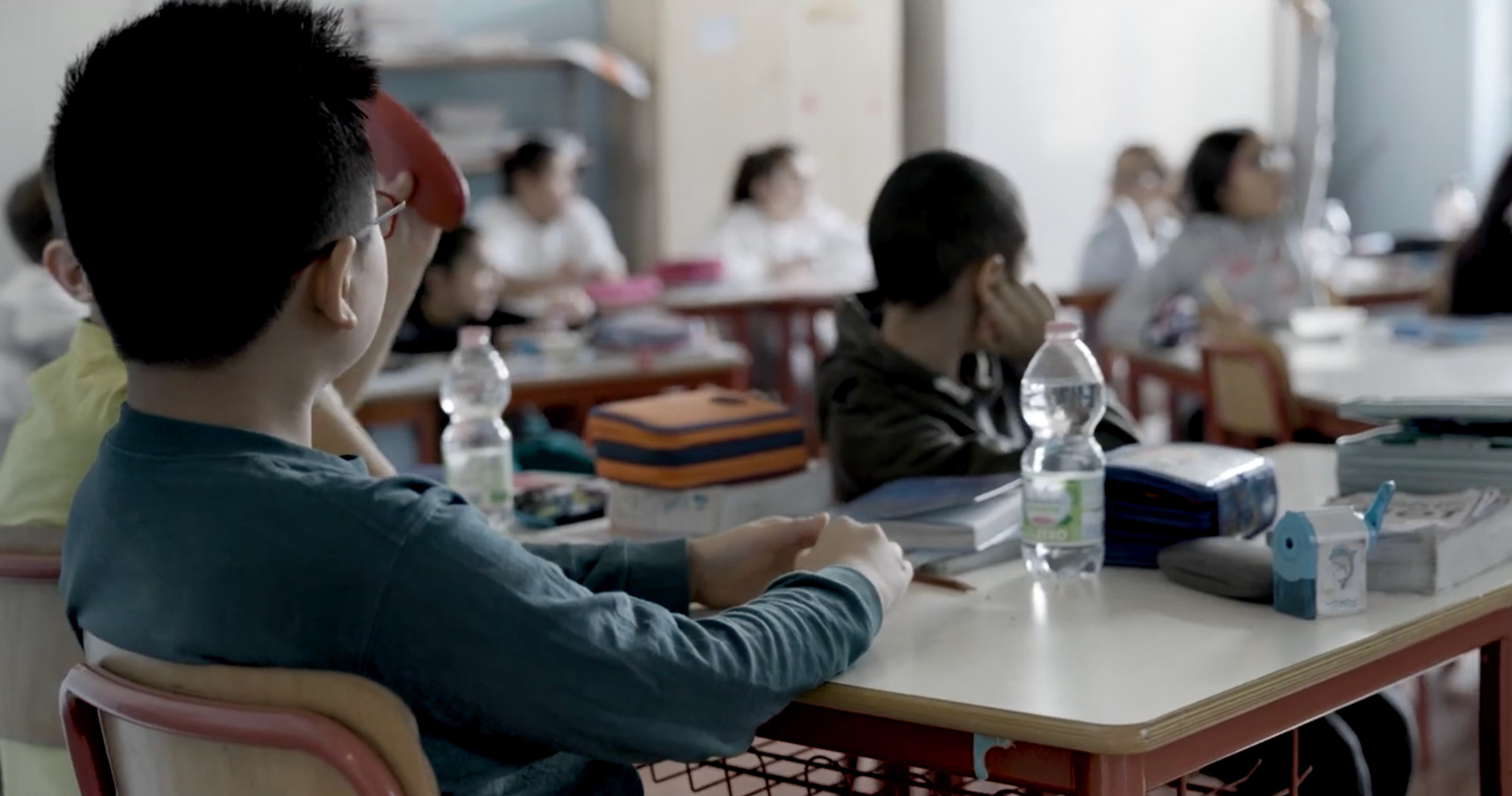Funded under the National Recovery and Resilience Plan (NRRP), Mission 4 Component 2 Investment 1.3, Theme 10.
Let the Food Revolution Start from the Family!
An insight into The Lively project, addressing childhood obesity through multidimensional strategies that engage parents, educators, doctors, and psychologists for lasting impact.

Sara Basilico
Researcher at University of Pavia
"Oh, come on, they’re kids, let’s give them candy," "Broccoli? We all know kids don’t eat those!"
How many times have you heard or said phrases like these? They are preconceived notions—deeply rooted ideas in our collective imagination that shape how we act. Kids are given sweets, and there’s certainly no insistence on having them try something that doesn’t look immediately “appealing.”
These beliefs find fertile ground within the family, which is the first educational environment for young children. The habits and food values instilled at home can influence a child’s dietary choices for a lifetime. For this reason, nutrition education projects must not focus solely on children but also engage parents and take into account the cultural diversity present in society.
Childhood Obesity: A Crisis We Must Tackle Together
Childhood obesity is a global health emergency. According to the fifth edition of the European Childhood Obesity Surveillance Initiative (COSI), conducted between 2018 and 2020, 29% of European children aged 7 to 9 are overweight or obese. This percentage is expected to rise, making systemic intervention increasingly urgent.
The causes of this phenomenon go beyond poor individual choices and are deeply rooted in family patterns and habits. According to the WHO, children with parents who are obese are twice as likely to develop weight problems, highlighting the family’s critical role.
Tackling childhood obesity requires multidimensional approaches that involve all stakeholders: parents, educators, pediatricians, nutritionists, and psychologists. It is also essential to go beyond nutritional education and broaden the conversation to include the cultural significance of food, exploring its history, traditions, and shared identities. This journey should begin at home, continue at school, and return enriched to the family environment.
Schools: A Bridge Between Knowledge and Awareness
Schools provide a prime setting for fostering dialogue and shared learning. A 2018 review published in The Lancet Diabetes and Endocrinology highlighted that school-based interventions combining dietary and physical activity components, while also involving families, are the most effective in preventing childhood obesity.
Schools are places where diverse cultures converge, creating opportunities to explore food traditions and promote greater inclusion. Through integrated educational programs, including practical activities such as cooking workshops, schools can raise awareness among families and support them in making more informed choices for themselves and their children.
LIVELY: A Project Connecting Schools and Families
The LIVELY project (MuLtidimensional school-based and family Involved interVentions, to promote a hEalthy and sustainable LifestYle for the childhood obesity primary prevention) serves as a tangible example of nutritional education that involves children, teachers, and families.
Implemented at the Luigi Cadorna Primary School in Milan, the project addressed topics such as proper nutrition, healthy lifestyles, and sustainability, engaging 14 classes and 227 children.

Given the school’s strong multicultural component, the Transcultural Food Pyramid developed by the Italian Society of Pediatrics was used. This pyramid integrates foods from various cultures, emphasizing diversity. As Maria Vittoria Conti, a specialist in Nutrition Science from the Laboratory of Dietetics and Clinical Nutrition at the University of Pavia, explains:
"The pyramid shows children the importance of certain food categories over others while considering the dietary habits of all ethnicities".
The project also engaged families in creating a shared recipe book featuring healthy dishes from around the world and organizing a year-end event where each family prepared a traditional dish from their country. The results were encouraging:
"My daughter told me not to buy sausages anymore because they are ultra-processed," shared one mother. "Before, I had to force him to eat breakfast, but now he enjoys it", added a father.
From the Classroom to the Kitchen Table
School is a powerful tool for laying the foundation of healthy eating, but true change happens within the family. It is in daily domestic life—through conscious choices and good habits—that what is learned is solidified. Parents play an essential role: setting a good example and involving children in meal planning.
Taking children grocery shopping, teaching them to read food labels, and including them in meal preparation are small gestures that foster a positive relationship with food. These practices not only reinforce the knowledge gained at school but also empower children to take an active role in their dietary choices.
As the LIVELY project demonstrates, collaboration between schools and families is the key to a healthier and more sustainable future. Yet, it is within the home, in everyday life, that these lessons become true dietary revolutions.


Sara Basilico
Researcher at University of Pavia
This blog post is related to
Policy, behaviour and education
Smarter behaviors for healthier diets
Principal investigators
Referred to
Spoke 07

